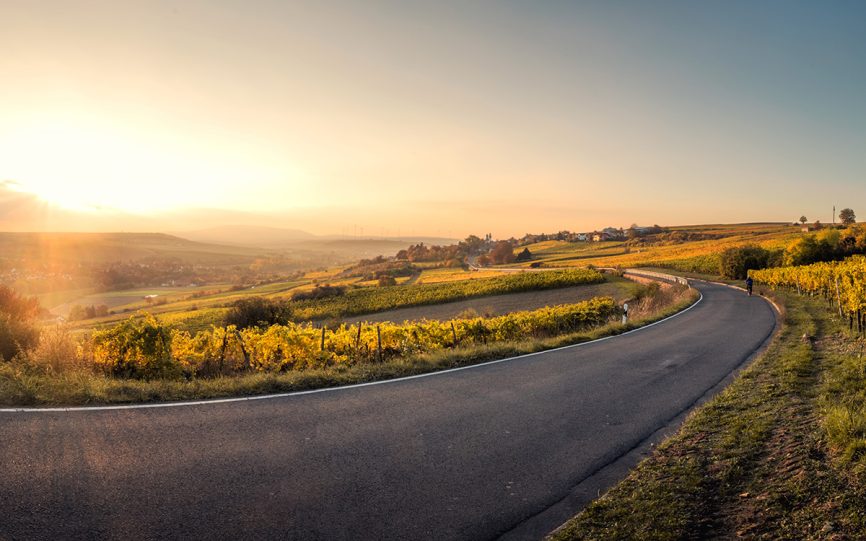By Rev. Dr. Anna Mitchell Hall
What is your latitude and longitude right now?
What is your exact street location?
Where does the water flow when rain falls where you are?
Who else lived where you are in years past?
What ecosystem are you in?
What type of land lies under your feet or under the building you are in right now? Is it a plain, a ridge, a mountain range?
There are infinite ways we can describe our physical location at any given time. We may be explaining our life situation, making small talk, giving someone directions to find us, or simply orienting ourselves. “Plug this address into your navigation system,” we say, or “Go past where the old store used to be, down to the big old barn, turn left there, and we are the third house on the right.”
My husband and I spent two summers traveling the United States camping in a tiny van. Constantly figuring out where we were and then striking out for new locations and experiences was disorienting, in all the best ways. It was only by losing our place that we could find it.
Getting into unfamiliar territory on the road or in life brings new experiences, impressions, and information. This is great, because getting outside our comfort zone can bring us new insights and change our ways of thinking. It is an uphill battle, though.

Have you heard of confirmation bias? One of the reasons getting outside our comfort zone is so good for learning is because we are programmed to favor information that reinforces our current beliefs. In everyday life, we typically seek out facts that only confirm what we already believe. Our brains actually light up in the pleasure centers when we find new sources of information that back up our existing opinions! This is why it can be so difficult to learn new things.
In our churches right now, so much is disorienting due to the past few years of pandemic life that we might as well be traveling a brand new road. The question for us as faith leaders is – how will we stay open to transformation in these times of disorientation?
On our travels, we found that layering spiritual practice and reflection on our new experiences deepened our learning and insights. The following practices helped us learn as strangers in sometimes strange lands.
Be prayerful and mindful. We can take the time to observe in each place who and what we are really seeing. One of Jesus’ gifts to us is how he saw the people behind their personal challenges. Whether oppressed, outcast, or having a disability, he saw them all as beloved children of God. We too can look at those along our journey with eyes of love, and say a quick prayer for all we encounter.
Take up the ancient prayer practice of lament. If we encounter a place that seems bleak and damaged, we can name the things we are grieving about our communities, the land we inhabit, and the earth as a whole.
Lean into confession. Confession gets a bad rap. It is assumed to be a way to beat yourself up for mistakes and flaws. Few of us need much help with that. But confession (or praying to acknowledge ways we have fallen short) can actually be a profound experience of naming truths and history so we can go forward by another road.
Practice Sabbath. Sabbath, in ancient Israel, was both the practice of resting one day a week and practices like letting land rest, forgiving debts, and acting in sustainable ways with others in the community. When we take time to rest and restore ourselves and others, our communities are strengthened.
Lean into hope. It can be hard to hope when our communities and countries seem to be in decline. But hope may be the only thing that will save us. Resignation leads to passivity, while hope leads to changed actions. In this way communal hope, the hope of many, can change whole communities.
Whether you are road tripping or simply traveling this journey called life, I believe that with a little work, anyone can find transformation along the way. It only takes a willingness to get out of your comfort zone, the will to incorporate a bit of spiritual practice every day, and an openness to the new things you are learning.
Have you ever found yourself trying to fit a disorienting experience into your existing ways of thinking? What practices were helpful for you?
Adapted from #VanChurch: Spiritual Lessons from Life on the Road, by Anna and Jim Hall. Available for purchase now.



Comments
Thank you! So very helpful. Your clear suggestions are touch points in a personal and global time of disorientation!
awesome job here!I love what you have so carefully and encouragingly have to say and agree wholeheartedly. Thank you for this message and the work you do! God BLESS you today.
really enjoyed this article. I need to do more of this. Sometimes we can just stop practicing things like a day of, or meditation, a call to a friend. Thank you.